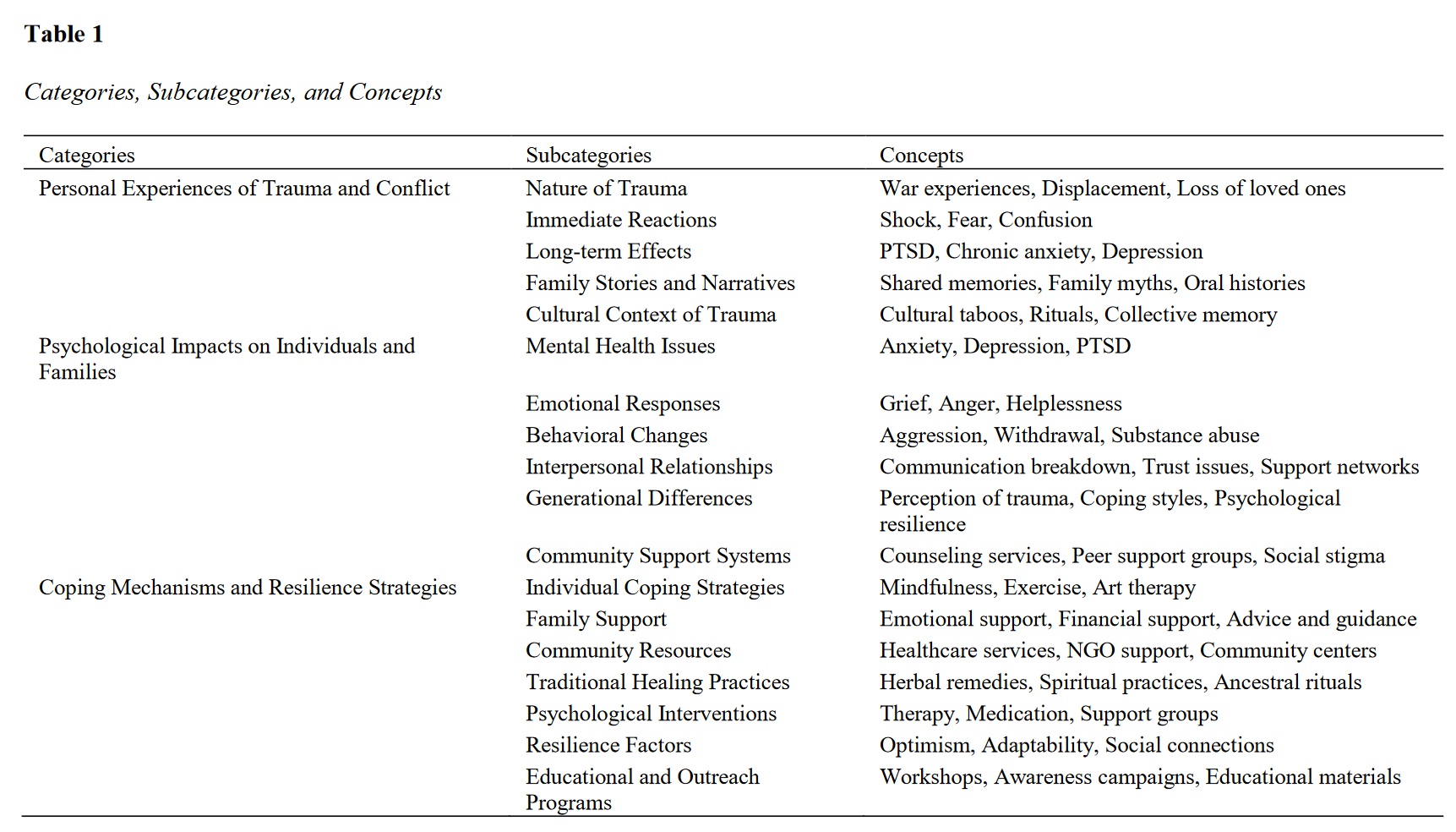Examining the Psychological Impact of Intergenerational Trauma on Family Dynamics in Post-Conflict Societies
Keywords:
Intergenerational trauma, family dynamics, post-conflict societies, psychological impact, coping mechanisms, mental healthAbstract
Objective: This study aims to examine the psychological impact of intergenerational trauma on family dynamics in post-conflict societies. By exploring personal experiences, psychological effects, and coping mechanisms, the research seeks to understand how trauma is transmitted across generations and how families manage its complex ramifications.
Methods: This qualitative study utilized semi-structured interviews with 21 participants from multiple generations within families in post-conflict regions. Participants were selected through purposive sampling to ensure a diverse representation. Thematic analysis was conducted using NVivo software, following the transcription and systematic coding of interview data. Data collection continued until theoretical saturation was achieved, ensuring comprehensive coverage of the research themes.
Results: The study identified three main themes: personal experiences of trauma and conflict, psychological impacts on individuals and families, and coping mechanisms and resilience strategies. Participants reported significant psychological effects such as anxiety, depression, and PTSD. Emotional responses included grief, anger, and helplessness, while behavioral changes involved aggression, withdrawal, and substance abuse. Coping strategies ranged from individual practices like mindfulness and exercise to seeking family and community support. The use of traditional healing practices and the availability of community resources were crucial in managing trauma. The findings highlight the enduring nature of intergenerational trauma and its profound impact on family dynamics.
Conclusion: Intergenerational trauma profoundly affects family dynamics in post-conflict societies, with significant psychological and emotional consequences. Effective coping mechanisms involve a combination of individual resilience and support from family and community resources. The study underscores the need for comprehensive, culturally sensitive interventions to address the multifaceted challenges posed by intergenerational trauma. Future research should focus on longitudinal studies and quantitative approaches to enhance the understanding and management of intergenerational trauma.
Downloads

Downloads
Additional Files
Published
Submitted
Revised
Accepted
Issue
Section
License
Copyright (c) 2024 Sayed Surena Pakbazi, Ali Derakhsh, Fatemeh Mohseni, Sakineh Seyadat (Author); Mojtaba Shahbazimoghadam (Corresponding Author); Bahman Namjoo (Author)

This work is licensed under a Creative Commons Attribution-NonCommercial 4.0 International License.






